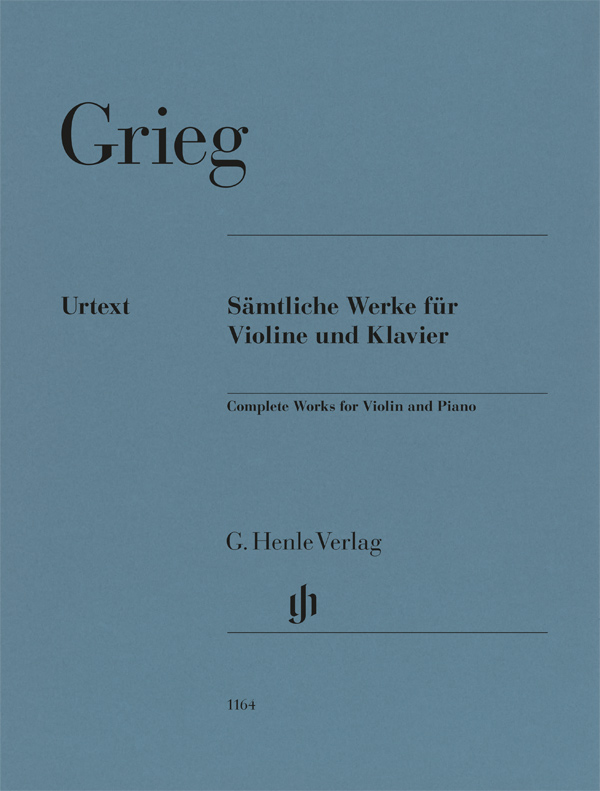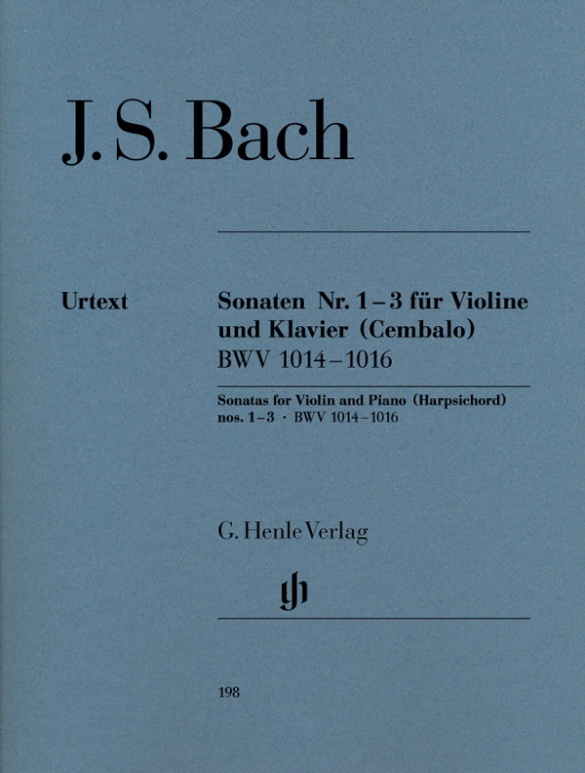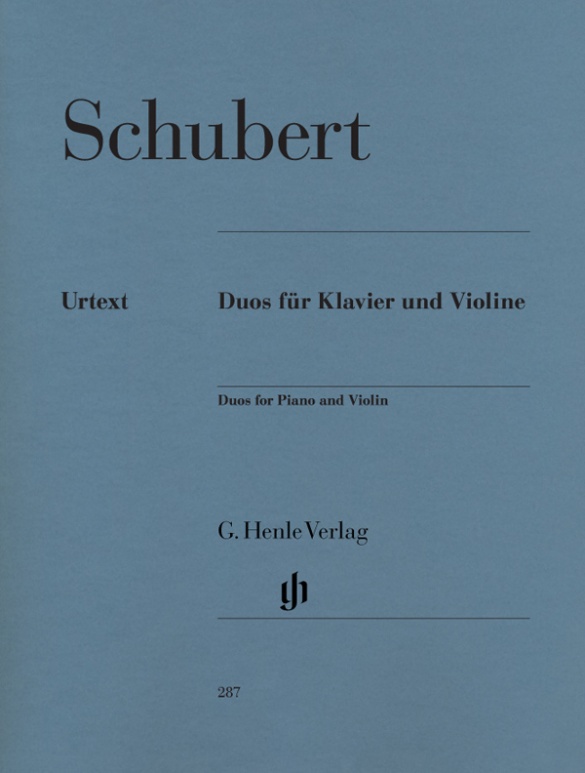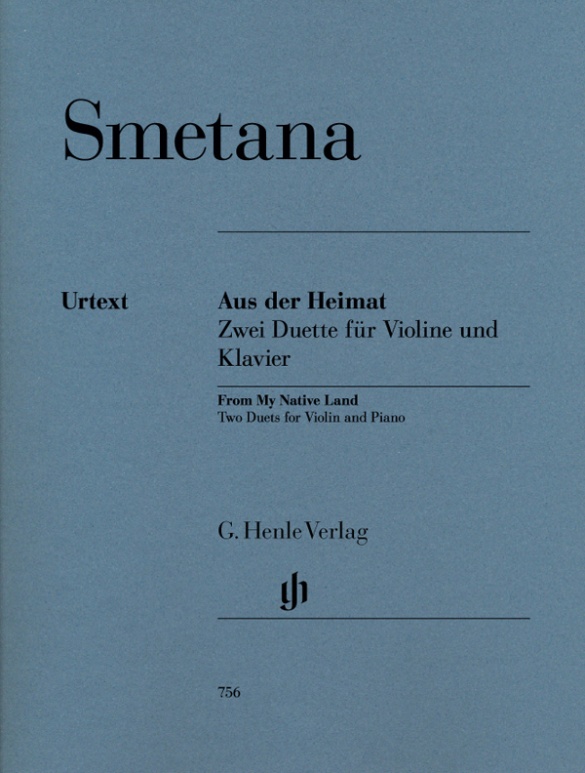

Bedrich Smetana
Du pays natal - Deux duos pour violon et piano
«Ils sont d’un style assez léger, plutôt destinés à l’usage domestique qu’à une exécution en concert» … C’est ainsi que Smetana décrit les deux duos qu’il compose en l’honneur de la Bohême, sa terre natale. Et l’on a peine à croire qu’il était alors déjà sourd depuis deux ans … Apprécié d’emblée, Smetana réussit même à «se servir» de plusieurs éditeurs à la fois pour faire grimper ses honoraires. Ces duos pour violon et piano, peu exigeants sur le plan technique, captivent par la vigueur de leurs mélodies et le plaisir de jouer qu’ils procurent.
CONTENU/DÉTAILS
CONCERNANT LE COMPOSITEUR
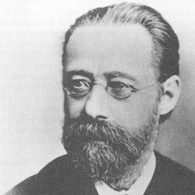
Bedrich Smetana
Son œuvre passe pour l’avènement d’une musique nationale tchèque. Elle comprend 8 opéras, des poèmes symphoniques, peu de musique de chambre, de nombreuses compositions pour piano, quelques œuvres vocales et des mélodies.
| 1824 | Né le 2 mars à Litomyšl d’un père brasseur. Succès en tant que pianiste déjà du temps de sa scolarité au lycée. |
| 1844 | Élève de composition de Joseph Proksch à Prague. Professeur de musique dans des familles de la noblesse. |
| 1848 | Fonde sa propre école de musique. |
| 1854 | Achèvement de son unique symphonie, la «Symphonie triomphale» en Mi majeur op. 6. |
| 1856–61 | Directeur de la Société philharmonique de Göteborg. |
| 1858 | Poème symphonique «Richard III» et «Le Camp de Wallenstein» sur le modèle de Liszt. |
| 1861 | Retour à Prague. Participe à l’émergence de la culture tchèque aussi en tant que critique musical. |
| 1866 | Maître de chapelle au Théâtre Provisoire à Prague. Création des opéras «Les Brandebourgeois en Bohème» et «la Fiancée vendue», ce dernier avec grand succès; c’est son œuvre la plus célèbre et elle est considérée comme un opéra national. |
| 1868 | Création de «Dalibor» comme opéra national sérieux. |
| 1869–72 | Composition de l’opéra «Libuše». |
| 1874 | Création avec succès de l’opéra «Les deux veuves». Perte de l’audition et par conséquent de son poste de maître de chapelle. Il continue cependant à composer. |
| 1872–79 | Cycle de 6 poèmes symphoniques «Ma Patrie», la plus connue de ses œuvres symphoniques, parmi lesquelles «La Moldau» avec ses passages pittoresques. |
| 1876 | Création à Prague de l’opéra populaire «Le Baiser». 1er Quatuor à cordes «De ma vie» en Mi mineur. |
| 1878 | Création de l’opéra comique «Le Mystère» et de l’opéra festif «Libuše» (1881) qui repose sur une légende tchèque. |
| 1884 | Meurt le 12 mai à Prague. |
About the Authors
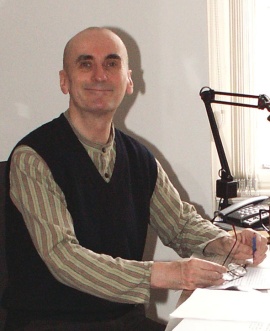
Milan Pospísil (Editeur)
Dr. Milan Pospíšil, born in 1945, studied music theory and music history at the Charles University in Prague as well as at the Ruhr-Universität in Bochum (1963–1969); in 1971 he did his doctorate there with a thesis on “Giacomo Meyerbeer: Les Huguenots. Příspěvek k analýze stylu”, and at the Czechoslovak Academy of Sciences in 1988 on “Antonín Dvořák: Dimitrij, op. 64. Kritická edice”.
He worked as a specialist and scholar at the Czechoslovak Academy of Sciences (now Academy of Science of the Czech Republic) in Prague for almost 30 years. In 1981 he co-founded the Smetana Festival and the interdisciplinary symposium on the issues of the 19th century in Pilsen, which still takes place today. Since 2000 he has been the curator and a research associate at the National Museum in Prague.
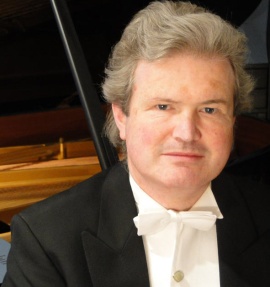
Michael Schneidt (Doigtés)
Michael Schneidt, born in Munich, received his piano education at the Staatliche Hochschule für Musik und Theater in Munich, studying with Hugo Steurer and Klaus Schilde. He then completed his artistic state examination with distinction as well as his master-class diploma. He continued his education on a grant from the DAAD with Alessandro Specchi in Florence, also taking master-classes with Paul Badura-Skoda and Bruno Leonardo Gelber. Michael Schneidt has been a prize-winner at international piano competitions (1st prize Viotti-Valsesia, Italy), has done radio and TV broadcasts and also made CD recordings; he has also premiered many contemporary piano works. He has performed in Europe (e.g. at the Prague Spring International Music Festival and at the German Mozart Festival), in Japan and in South America.
Michael Schneidt is Professor of Piano at the Staatliche Hochschule für Musik und Theater in Munich. He has given master-classes in Germany, Switzerland, the Czech Republic and Japan, and is from time to time a member of the jury at music competitions.
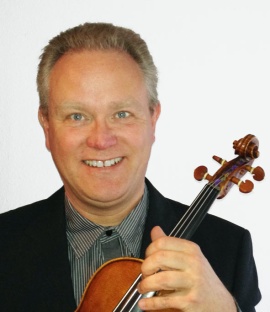
Ernst Schliephake (Doigtés violon)
Ernst Schliephake was born in 1962. At the age of seven he was already a state prize-winner in the category violin at the young people’s music competition “Jugend musiziert”; the following year he achieved the same result with the clarinet. He was taught by Klaus Speicher and Heinz Hepp (violin and clarinet) and studied the violin in 1979 with Prof. Lukas David in Detmold, working as his assistant between 1983 and 1985. Aside from playing the violin in Tibor Varga’s chamber orchestra, he also played many chamber concerts with him, predominantly as a clarinettist. A master-class with Ruggiero Ricci 1981, led to an intensive collaboration and friendship.
Since 1986 he has been a violinist with the Düsseldorf Symphony Orchestra, the Bavarian Radio Symphony Orchestra and the Bavarian State Opera, and since 1989 has been the associate concertmaster with the Munich Symphony Orchestra.
Informations sur la sécurité du produit

G. Henle Verlag
Vous trouverez ici des informations sur le fabricant du produit.G. Henle Verlag e.K.
Forstenrieder Allee 122
81476 München
Allemagne
info@henle.de
www.henle.com
recommandations
autogenerated_cross_selling
Autres éditions de ce titre
Autres éditions de ce titre


